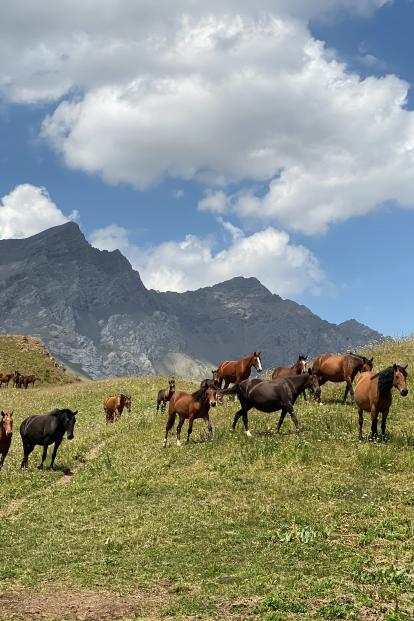Climate Change and Resilience in Central Asia
Background
The project aims to support stability and climate resilient development in the Ferghana Valley, a trans-border area of the Kyrgyz Republic, the Republic of Tajikistan and the Republic of Uzbekistan.
Objectives
- Enhance knowledge base and capacities to identify and assess climate-driven resilience risks in the Ferghana Valley
- Provide technical assistance on the introduction of climate resilience risks into national policies, climate change adaptation and development strategies and plans
- Promote regional exchange and awareness on climate resilience
- Demonstrate climate-related early warning and prevention measures at pilot sites in Ferghana valley
Major Achievements
- 1,258 people (375 women and 883 men) benefited from 27 trainings and workshops
- Identified current level of awareness of local decision makers on climate-fragility risks through baseline survey among 415 decision-makers (65 women and 350 men)
- 209 young professionals from 64 universities increased their knowledge on water-energy-food-health and climate change NEXUS.
- More than 20 legal documents analyzed and climate fragility risks and resilience measures mainstreamed into water code of Uzbekistan and Syrdarya River Basin Management Plan in Tajikistan.
- Selected 8 pilot sites for the installation of non-contact water discharge instrument in Uzbekistan.
Related Materials
Impact
Related content

 Locations
Locations





